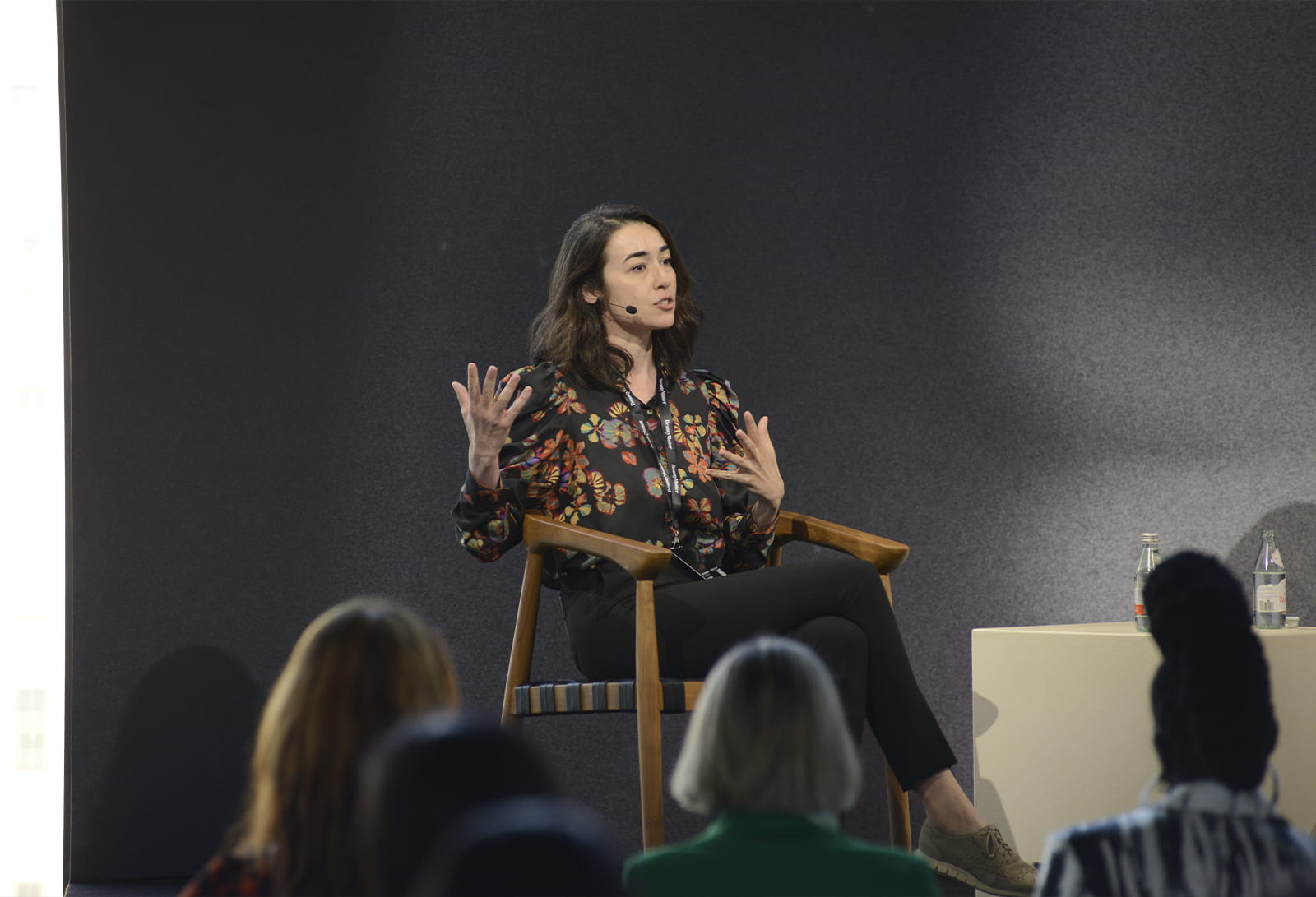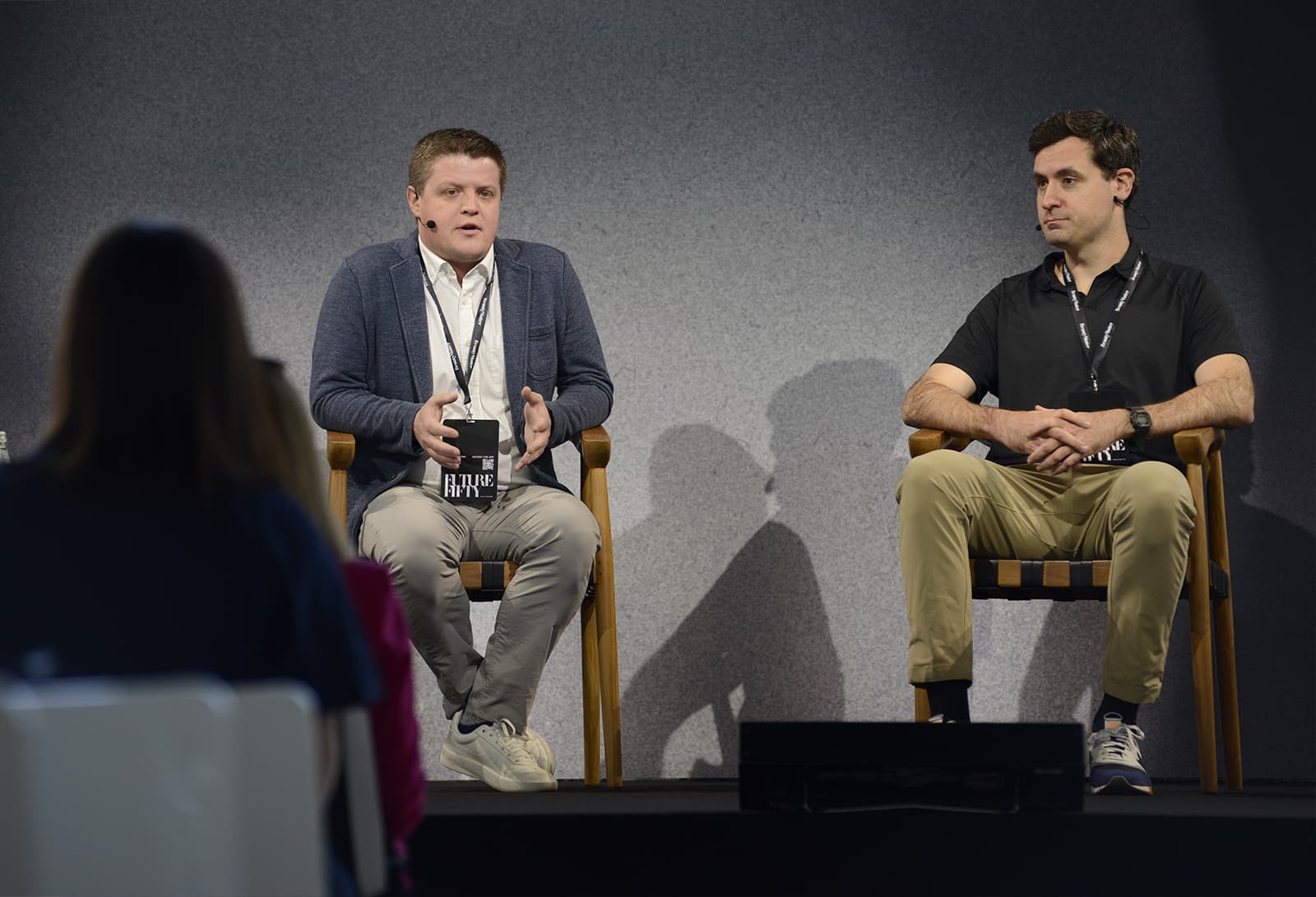Ingredients are the very foundation of the products created by beauty and wellness brands. The innovation happening in labs around the world fuels the creativity of formulators and finds its way into the marketing messages of the buzziest brands. At BeautyMatter’s FUTURE50 event, we talked to three founders leveraging the power of biotech to launch novel molecules that transcend the traditional beauty industry mindset and challenge the limits of what's possible. These companies are revolutionizing the industry from the ground up, and this panel gave us a peek at ingredient innovations we can come to expect in the near future.
For context, Grand View Research reports the global biotechnology market was valued at $1.55 trillion in 2023 and is projected to grow at a CAGR of 13.96% from 2024 to 2030.
Arcaea is giving the deodorant category an upgrade through microbiome reactive odor prevention technology and is also resurrecting extinct plant species through the fragrance brand Future Society. Debut Biotechnology is offering brands a new level of speed and efficacy when it comes to biotech creation through fully vertical integration capabilities, a bio-to-consumer platform, and over 7,000 active ingredients to choose from. Debut not only powers its own brands, like the newly launched Deinde, but the company also works with other brands from the formulation stage all the way through to pack and fill. Osmo, an AI and olfactory science-based platform, is revolutionizing fragrance ingredients and scent applications, extending all the way to scent teleportation.
“What gets me really excited about biology is that it enables new claims and new product experiences in the category,” says Jasmina Aganovic, founder and CEO of Arcaea.
“The technology that we use to create ingredients influences the ingredients that we can create, which influences the types of formulations we can create, which influences the types of products we can create, which influences the brands and creators that ultimately create the products that we use every single day. The ingredients have a deep impact on how things show up, and when we can make new ingredients in new ways using new technologies like biology, everything can really change.”
Arcaea is working on a variety of categories, but in the last two years, the company has really been focused on the category of “personal scent.” In Arcaea’s view, people manage their personal scent in two different ways. On one end, you use a product like deodorant to avoid the experience of feeling shame on a daily basis. On the other end, you have fragrances that are like this elevated, emotional, experiential journey. Arcaea is looking to blend those categories with the technology that the company has created, both on the deodorant side and also fragrances.
“We think that, in the future, we will actually be able to control how we personally want to smell, and that those categories will become blurred,” says Aganovic.
Debut approaches biotechnology and beauty in its own way. Joshua Britton, PhD, founder and CEO of Debut, says his company is trying to take lessons from the pharmaceutical industry. He gave the example of how, 100 years ago, humans used to get headache medication from the bark of a tree, and then in 1930, we used chemistry to create that medicine and many others. Looking at the top 100 drugs right now, 99 out of 100 of them are made through biotechnology. Why? Because biotechnology offers purity, consistency, potency, personalization, and sustainability. These benefits can really drive the advent of a new era in beauty.
“We see that trend happening that's already happened in the pharma industry, come into beauty,” says Britton. “Health, wellness, science, and med-tech are really merging with beauty, and Debut exists to power that innovation forward, so the way we look at claims is the exact same way we look at innovating in products.”
Over the last few decades, the beauty industry has seen many marketing innovations and few product innovations. Biotechnology promises to change that in the future. Another perk of biotechnology is that it’s un-dupeable, because it has unique intellectual property embedded in the molecules themselves.
“You can't expect there to be product innovation when every single brand in every single country is using the same ingredients in the same contract manufacturers in the same formulation technology,” says Britton.
Deinde was created to bring new claims, new products, and new product innovations to the market. Without science, Britton argues, that would be very, very difficult. Science provides a new level of creativity and forward-driving innovation that starts with the claim and the product.
Osmo’s mission is to give computers a sense of smell, which CEO Alex Wiltschko admits “sounds a little bit weird and out there.” However, he points out that our computers can already see and hear. Osmo has been working towards this goal in pursuit of its mission to fully digitize this sense.


Osmo is using artificial intelligence (AI) to design the next generation of safe, affordable, beautiful fragrance ingredients. Of the 1,000 to 2,000 ingredients that a perfumer has access to to build new fragrances, only about 40 are strategically important and show up in almost every fragrance. These ingredients do not show up on the back label; they're usually embedded in that secret little word called “fragrance” in the ingredient list. Of those 40 ingredients, about half of them are under regulatory threat and for good reasons. Either they don't break down in the environment or they’re ocular, or skin irritants, or allergens. These ingredients are either already labeled for reduction in use or changes in labeling, or they will just be taken off the market.
“What we're doing is we're using AIto explore the mind-boggling vastness of chemical space to find new, safe fragrance ingredients that cannot just give us safety and affordability, but also new product capabilities and new fragrances that you can experience,” says Wiltschko. “We've brought our first few ingredients to the patent office, and we've licensed a few of them, but we're just in the very beginning stages right now.”
There are more astronauts than perfumers in the world. Over their entire career, perfumers will focus on 100 to200 ingredients. Osmo aims to bring AI and olfactory science together and has built an AI system that rapidly discovers novel fragrance ingredients and has created notes praised by master perfumers, industry experts, and double-blind odor panels. Wiltschko says Osmos’ technology can give them a new tool to do their job better, safer, and quicker.
Aganovic says that educating the consumer on biotechnology in the market is not part of her brand’s strategy. “Leading with education can be a challenge,” she says. “For us, product is at the forefront and stands on its own.”
According to Britton, retailers have some of the best ideas for ingredient innovations. They have access to millions of search terms and consumer data showing what consumers are looking for.
For Aganovic, commercializing ingredients has been a huge uphill battle. One of the leading active ingredients that gets formulated into 40% of suncare products only generates $14 million in revenue per year. “This is actually why there's no innovation on the formulation side,” she says. “The incentive is not there for people to innovate in ingredients.”
Britton echoed the sentiment, sharing that Debut is powered by a team of 90 scientists and requires $30 to $40 million annually to run the ingredient side. Britton says most ingredient suppliers have two options: either the B2B route or working with brands as an incubator. Debut recently launched Deinde, a skincare line that targets inflammaging, or inflammation that accelerates aging.
“People just started talking about inflammaging, but there was no ingredient,” says Britton. “Once we were able to understand what we’re trying to target on a formulation level, we were able to enact the scientists. We had to discover a new ingredient. We screened molecules on different skin cells and looked at gene responses. Once you know how the claim is meant to come forward in the product, it’s about how do we turn those genes on?”
AI plays an increasingly bigger role in our lives, especially regarding ingredient creation. AI is an umbrella term for many tools that can help you explain the past, make decisions in the present, and forecast the future. Osmos plans to use AI to digitize smell and make all of the world's smells accessible.
“The ultimate goal is to be able to really understand what the entire world smells like and understand if you will like that particular smell,” says Wiltschko. “As these power tools get easier to use, you will find places where they actually can help us make better decisions, or understand the world better, or forecast what's coming better.”
On the topic of "clean beauty," Aganovic makes the distinction that while “clean” is associated with plants, biotechnology allows scientists to explore the different molecules of plants. Clean beauty has often been associated with tradeoffs, but biotech can complement and alleviate that. “It gets at one of the core tenets of clean, which is transparency and safety,” she says.
“Clean beauty won’t be around in 10 years,” predicts Britton. “Now is a great opportunity for retailers not to look at clean but at a new era. Everything fits into the new clean beauty movement, but now they don't grow mold.”
Key Takeways: